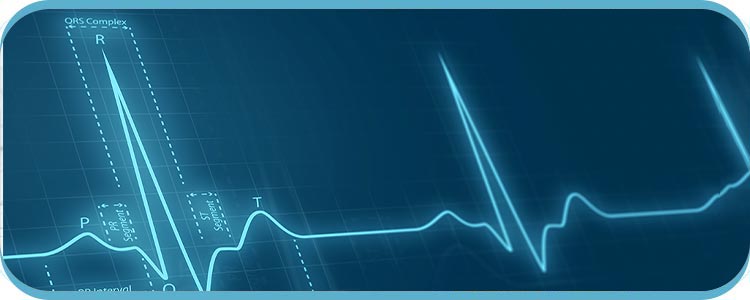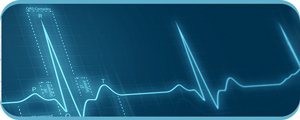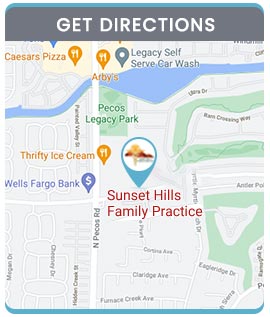Long QT Syndrome Treatment in Henderson, NV
Long QT syndrome (LQTS) is a hidden heart condition that disrupts your heart’s electrical signals. This may result in arrhythmias, which are dangerously rapid and erratic heartbeats. Long QT syndrome can be caused by genetic factors or acquired later in life due to external influences. Identifying and managing Long QT syndrome helps prevent serious complications by restoring a more normal QT interval. Andrea Warburton MSPHS, PA-C provides Long QT syndrome treatment at Sunset Hills Family Practice.To learn more, contact us or schedule an appointment online. We are conveniently located at 2510 Wigwam Pkwy Suite 102, Henderson, NV 89074.


Table of Content:
What is long QT syndrome?
What causes long QT syndrome?
What are the symptoms of long QT syndrome?
How is long QT syndrome diagnosed?
How is long QT syndrome treated?
Long QT syndrome is an issue affecting the heart’s electrical system, causing the heart to take longer than usual to recharge between beats. This interval is known as the QT interval, and it is a segment on the electrocardiogram report indicating the speed at which heart muscles contract and recover.
This condition can lead to fast and irregular heartbeats, which are potentially life-threatening. Long QT syndrome can cause various deteriorating health outcomes and can be chronic and ongoing. The condition affects the heart rhythm and can result in fainting and seizures due to the improper signaling within the heart.
Some people are born with Long QT syndrome because of genetic changes, while others develop it later in life. Identifying and managing Long QT syndrome helps prevent serious complications by restoring a more normal QT interval.
Long QT syndrome can be caused by genetic factors or acquired later in life due to external influences. Congenital Long QT syndrome is inherited and caused by changes in DNA, often involving the ion channels of the heart, which slows the heart’s recovery phase, leading to arrhythmias.
Individuals with family members who have Long QT syndrome or congenital heart conditions are at a higher risk. Acquired Long QT syndrome can result from medications or other health conditions. Medicines such as antibiotics, antifungals, heart rhythm drugs, and mental health medications can prolong the QT interval.
It can also occur due to low levels of electrolytes or other health conditions. Identifying the root cause and type of Long QT syndrome is important for effective treatment.
The most common symptom of Long QT syndrome is fainting, known as syncope, which happens when the heart beats irregularly. Fainting spells can be triggered by excitement, anger, fear, or physical activity. Symptoms that may precede a fainting spell include lightheadedness, blurred vision, heart palpitations, and weakness.
In some cases, Long QT syndrome can also cause seizures. Symptoms can appear early in life for those born with the condition, typically by the age of 40, though some may not show symptoms and be diagnosed through routine tests. For those who acquire Long QT syndrome later, symptoms can emerge at any age and may even occur during sleep.
Diagnosis of Long QT syndrome involves several steps, including an electrocardiogram (ECG) to measure the QT interval. A QT interval longer than 450 milliseconds may indicate Long QT syndrome.
Providers at Sunset Hills Family Practice will review the patient’s medical and family history, looking for instances of fainting, seizures, or sudden cardiac arrest.
Additional tests may include genetic tests to identify inherited forms of the condition, blood tests, ambulatory monitors, and exercise stress tests. These tests help determine the type and cause of Long QT syndrome, guiding effective treatment plans. Early diagnosis can aid in managing the condition and preventing serious episodes.
Treatment for Long QT syndrome is tailored to the individual’s specific needs. For acquired Long QT syndrome, addressing the underlying cause, such as stopping a problematic medication, can provide relief.
Medications like beta blockers can help stabilize the heart’s rhythm and reduce the risk of fainting and arrhythmias. Devices such as pacemakers or implantable cardioverter defibrillators (ICDs) may be used to manage the condition.
Surgical options, like left cardiac sympathetic denervation, might also be considered. These treatments do not cure Long QT syndrome but can significantly reduce risks.
Lifestyle modifications, such as managing stress and avoiding overexertion, are also advised to minimize symptoms. With proper management, individuals with Long QT syndrome can lead active and fulfilling lives.
Long QT syndrome treatment is available at Sunset Hills Family Practice. To learn more, contact us or schedule an appointment online. We are conveniently located at 2510 Wigwam Pkwy Suite 102, Henderson, NV 89074. We serve patients from Henderson NV, Midway NV, Paradise Hills NV, Gibson Springs NV, Whitney NV, Boulder City NV, Winchester NV, and surrounding areas.




